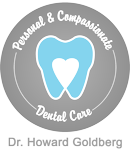Mini Implants
Mini implants are very small and thin implants used to help stabilize dentures. Many patients who are ineligible for traditional implants are forced to use dentures as prosthetic tooth replacements. Mini implants offer a simple solution for denture wearers by offering a sturdy anchor that dentures can attach to. A thin post is placed deep within the bone beneath the gums in an operation that usually takes only a single visit. Dentures can be secured to the tops of the posts, where they will remain secured until the wearer takes them off.
Did you know…that over time, the bone beneath the gums can deteriorate, causing dentures to become loose? Without mini implants, dentures can begin to slide around in the mouth, forcing the wearer to frequently reposition them. Dentures can also become obstructive during meals and when communicating with others. Fortunately, many patients who have insufficient bone density for traditional implants find that they are eligible for mini implants. |
Frequently Asked Questions
I wear dentures. Could I be a candidate for mini implants?
If you dream of laughing, talking, and eating with hesitation, mini implants could be right for you. They require less supporting bone structure than traditional implants and could make life with dentures much simpler. Contact your [city] dentist for more information and to find out if mini implants are right for you.
What should I expect when I get my [city] mini implants?
Mini implant surgery is usually completed in about two hours or less. During your visit, you will be placed under anesthesia while your dentist places a series of several posts deep into your jaw along your gum line. A small portion of the post will be capped above the gums, where it will serve as an anchor for your dentures.
Will I need to follow any special instructions after getting mini implants?
Mini implants feature a short recovery period during which time you may experience some discomfort. You will need to avoid drinking from straws and smoking in the first couple of weeks following your surgery. You’ll also be required to gently brush the gums and rinse the surgical site daily with a saltwater solution. If your [city] dentist prescribes antibiotics, be sure to complete the entire course to prevent infection.












